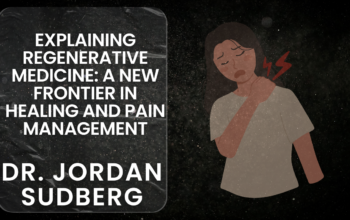In the realm of technology, few areas hold as much promise and potential for transformation as the field of transportation. From electric vehicles to autonomous drones, innovations in moving tech are reshaping the way we travel, commute, and transport goods. Among the pioneers leading this charge is Chris Townsend, a visionary entrepreneur and advocate for disruptive technologies in transportation. In this article, we’ll explore three transformative technologies championed by Chris Townsend and their implications for the future of moving tech.
Electric Vehicles (EVs)
Chris Townsend has been a vocal proponent of electric vehicles for years, recognizing their potential to revolutionize transportation by reducing carbon emissions and dependence on fossil fuels. As the former Head of Electric Vehicles at British Gas and CEO of Bumblebee Power, Townsend played a key role in promoting EV adoption and infrastructure development. Today, EVs are no longer just a niche market; they’re becoming increasingly mainstream, with major automakers investing billions in electric vehicle technology. From sleek sedans to rugged SUVs and even electric trucks, the EV landscape is evolving rapidly, driven in part by the vision and advocacy of pioneers like Chris Townsend.
Hyperloop
Another transformative technology that Chris Townsend has been involved in is the hyperloop. Conceived by Elon Musk as a high-speed transportation system, the hyperloop promises to transport passengers and cargo at near-supersonic speeds through vacuum-sealed tubes. Townsend has been a vocal supporter of hyperloop technology, recognizing its potential to revolutionize long-distance travel and freight transportation. While the hyperloop is still in the early stages of development, several companies, including Virgin Hyperloop and SpaceX, are actively working on prototype systems. If successful, the hyperloop could drastically reduce travel times between cities, alleviate traffic congestion, and reshape the global logistics industry.
Urban Air Mobility (UAM)
Urban air mobility, or UAM, refers to the use of electric vertical takeoff and landing (eVTOL) aircraft for short-distance urban transportation. Chris Townsend has been a leading advocate for UAM, envisioning a future where commuters can bypass traffic congestion by flying over cities in electric air taxis. Companies like Uber, Airbus, and Joby Aviation are already developing eVTOL aircraft prototypes, with plans to launch commercial services in the coming years. While regulatory hurdles and infrastructure challenges remain, the potential benefits of UAM are immense, including reduced commute times, lower emissions, and increased mobility for urban residents.
Autonomous Vehicles
In addition to electric vehicles, Chris Townsend has been a strong advocate for autonomous vehicles (AVs), also known as self-driving cars. AVs have the potential to revolutionize transportation by improving safety, reducing traffic congestion, and increasing mobility for the elderly and disabled. Townsend believes that the widespread adoption of AVs will fundamentally change the way we think about car ownership and transportation infrastructure. Companies like Waymo, Tesla, and Uber are investing heavily in AV technology, with the goal of bringing fully autonomous vehicles to market in the near future. While there are still regulatory and technological challenges to overcome, the promise of safer, more efficient transportation is driving continued innovation in the field of autonomous vehicles.
Smart Transportation Infrastructure
Another area of interest for Chris Townsend is smart transportation infrastructure, which leverages advanced technologies like sensors, artificial intelligence, and data analytics to optimize traffic flow, reduce congestion, and improve safety on roads and highways. From smart traffic lights that adjust signal timing based on traffic patterns to connected vehicle systems that enable real-time communication between vehicles and infrastructure, smart transportation solutions have the potential to make our roadways more efficient and sustainable. Townsend advocates for greater investment in smart transportation infrastructure as a key enabler of future mobility solutions, helping to create more livable, resilient cities and communities.
Sustainable Aviation
As concerns about climate change continue to grow, there is increasing pressure to develop more sustainable forms of air travel. Chris Townsend recognizes the importance of reducing the environmental impact of aviation and has been involved in initiatives to promote sustainable aviation fuels (SAF) and alternative propulsion technologies. From biofuels made from algae and waste materials to electric and hydrogen-powered aircraft, there are promising developments underway to decarbonize the aviation industry. Townsend believes that by embracing innovation and collaboration, the aviation sector can transition to more sustainable practices while continuing to meet growing demand for air travel.
Conclusion
As the world faces pressing challenges like climate change, urbanization, and congestion, transformative technologies in transportation are more important than ever. Chris Townsend, with his vision and passion for innovation, has been at the forefront of this movement, advocating for electric vehicles, hyperloop, and urban air mobility as key solutions for a sustainable and efficient transportation future. While there are still obstacles to overcome, the momentum behind these technologies continues to grow, promising a more connected, accessible, and environmentally friendly world for future generations. With leaders like Chris Townsend leading the charge, the future of moving tech looks brighter than ever.


